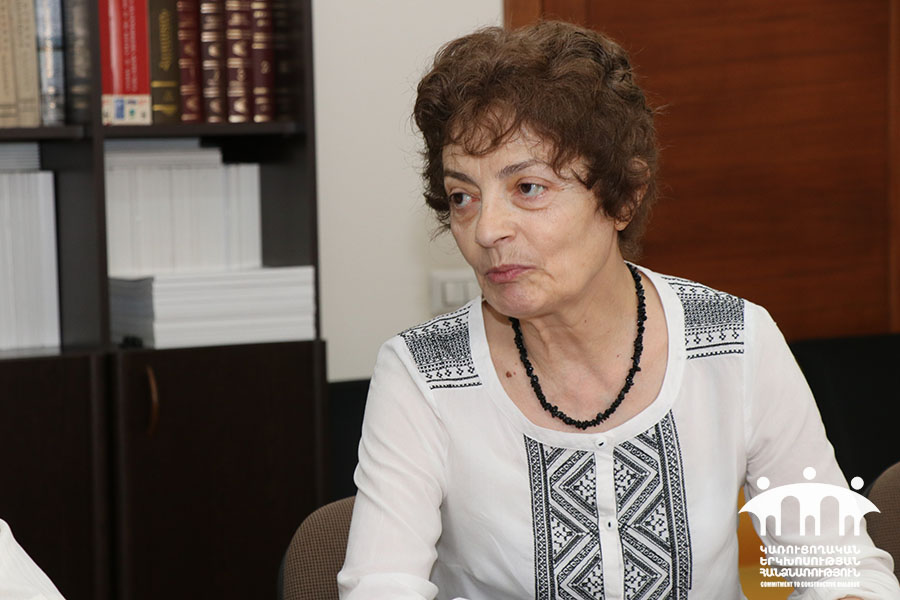If 3 out of 12 ministries have held one or two sessions in the last three years within the framework of the public councils under the minister, and the other ministries have not done anything, moreover, after the reconstruction of the websites the information has remained only in a few websites, how can cooperation between the government and civil society organizations be considered sufficient?
Ms Tamara Abrahamyan, member of CSO Anti-Corruption Coalition of Armenia, President of “Araza” Benevolent NGO said in a conversation with Iravaban.net.
“We are members of the public council in three ministries, including the Ministry of Justice, which regularly invites the civil society to its sittings and discussions, but no member of the council has been invited. They invite new organizations, moreover, the names and contacts of the organizations with which they have worked during this period are posted on their website. The basis on which those organizations appeared there and in what status is not seen in any way.
The latest was a discussion on judicial reforms, but our organization, as a member of the CSO Anti-Corruption Coalition of in Armenia, was not invited to participate in it,” the President of the non-governmental organization said.
She also mentioned that she had already seen the summary published by the ministry on that discussion; whereas the proposals published by the CSO Anti-Corruption Coalition of Armenia on 1 November were not fully and systematically included in it. “It is said that within the framework of judicial reform, the vetting of judges should be done in stages at the moment, as judges acting in accordance with Article 73 of the Constitution cannot make their professional assessment, as the law has no retroactive effect.
They have planned those stages, but it is not clear, the mechanism of its implementation is not seen, in what ways those stages should be done. For example, the CSO Anti-Corruption Coalition of Armenia recently discussed the issue and noted that many laws, starting with the Constitution, need to be amended in order to form an integrity checking commission and start working. But if those changes are not made and the current changes prevent them from implementing their decision, then what they have written will remain on paper and will not bring results. There is no road map, certain fundamental issues have not been resolved, for example, whether there will be an opposition in that commission or not; if there is an opposition, will it be only the opposition of the National Assembly, or whether there will be extra-parliamentary forces; will there be participation of CSOs or not. Or f there will be no CSO participation, then why?
There are many obscure questions left, and if they were not, this will be just a cosmetic thing, which will not bring results. Or, maybe they imagine a clear result and will take it in the format that they achieve what they want,” Tamara Abrahamyan said.
According to her, this is a sad reality and it is not only her subjective opinion, during the discussion organized by the CSO Anti-Corruption Coalition the opinion of more than 30 different non-governmental organizations was the same.
“The judiciary is a separate, independent institution of Government. If the Ministry of Justice is to manage the integrity checking process of judges, it means that it will have an inadmissible influence and pressure on the judiciary. This is already wrong, it is inadmissible in principle, because the Power consists of three wings: the National Assembly, the Government, the Judiciary and all three of them must be independent of each other. If the Ministry of Justice is going to form a commission on integrity checking, and it will manage the process, it means that the government will obviously have an impact on the judiciary. The independence of the judiciary is violated,” the President of the NGO said.


















